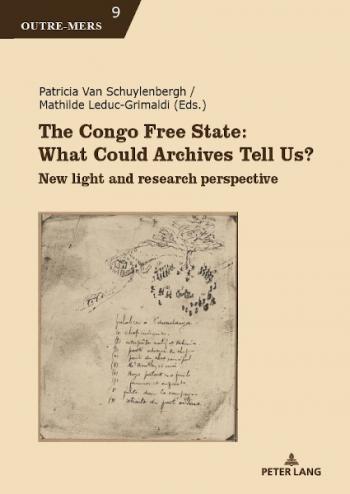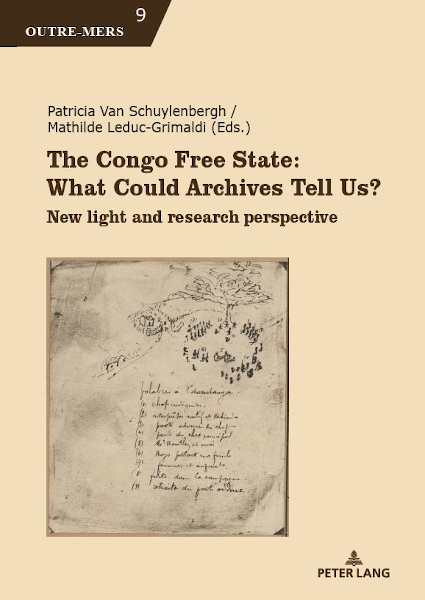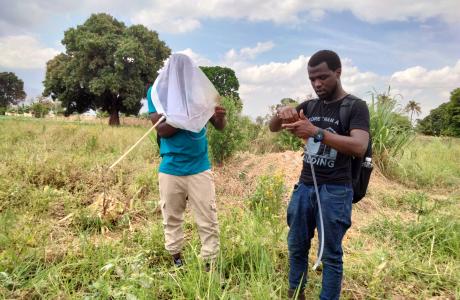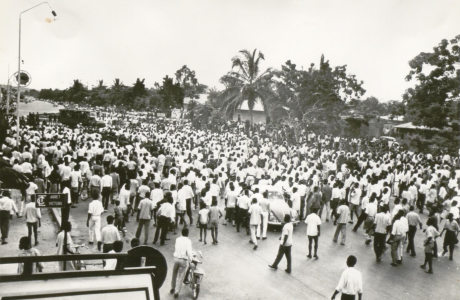The Congo Free State: What Could Archives Tell us?
In the new book The Congo Free State: What Could Archives Tell us? New light and research perspective, international historians and archivists delve into little-known or unpublished archives produced during the Congo's Free State (1885-1908). Through fine analysis, they demonstrate that the history of this period is far from having revealed all its facets. Published by Peter Lang, the book is co-edited by Patricia Van Schuylenbergh and Mathilde Leduc-Grimaldi, two historians from the AfricaMuseum.

The archives and their current importance
For several years, there has been a lively debate about Belgium's colonial history in the DR Congo and, in particular, about the Congo Free State (CFS), which was created by King Leopold II. The colonial archives are at the centre of this important discussion.
‘Several researchers are currently conducting important research based on various methodologies and sources, including oral history, enriched by fieldwork and an increased awareness for the memorial approach’, explains Patricia Van Schuylenbergh, historian at the AfricaMuseum and co-editor. ‘But written archives are still fundamental sources for anyone who wants to study the colonial phenomenon. They remain the main sources for reconstructing the facts of the past.’
Thirteen international contributors
In this new collective work, thirteen historians and archivists from universities or scientific institutions in Belgium, DR Congo, France, Italy, the Netherlands, the United Kingdom and the United States base their contributions on lesser-known, long-lost or recently opened or rediscovered archives. A large part of these archives are held at the AfricaMuseum.
The book is divided into three parts. The first part provides an overview of the main institutions housing the CFS-related archives (AfricaMuseum, State Archives and the Royal Palace), thus helping readers to navigate through the maze of available archives. The other two chapters shed additional light on lesser-known or revisited themes and navigate between global and local history, between diplomacy, justice, trade and capital.
‘These archives are crucial for a deeper understanding of the nearly 25 years of the Congo Free State that marked Belgium's entry into the colonial era’, says Mathilde Leduc-Grimaldi, also a historian at the AfricaMuseum and co-editor.
For a new outlook on the complexity of history
Following macro- or micro-historical approaches, the authors demonstrate what the archives can still offer us to perfect our knowledge and refine our opinion in the long run. In particular, they highlight the fact that the history of the CFS is part of a global and local history of Central Africa, which must be taken into account and which bears witness to the complex interactions between the various actors involved.
‘This book is both an invitation to get to the roots and to reevaluate the grounds of Belgian, African and international colonial history’, explains Mathilde Leduc-Grimaldi. ‘We hope that this book will contribute to a new outlook on the complexity of colonial history, and of the CFS in particular.’
The Congo Free State: What Could Archives Tell us? is a collective work co-edited by Patricia Van Schuylenbergh and Mathilde Leduc-Grimaldi, historians at the AfricaMuseum.
Patricia Van Schuylenbergh heads the Unit History and Politics at the Royal Museum for Central Africa (RMCA) and is scientific curator of the colonial archives held at the institution. She recently co-edited with the Belgium State Archives, Belgique, Congo, Rwanda et Burundi: Guide des sources de l’histoire de la colonisation (19e-20e siècle) (2021).
Mathilde Leduc-Grimaldi is the Henry M. Stanley Archives and Collections’ curator at the Royal Museum for Central Africa (RMCA). Her last book Finding Livingstone, a History in Documents from the Stanley Archives, is co-published with J. L. Newman (2021).



